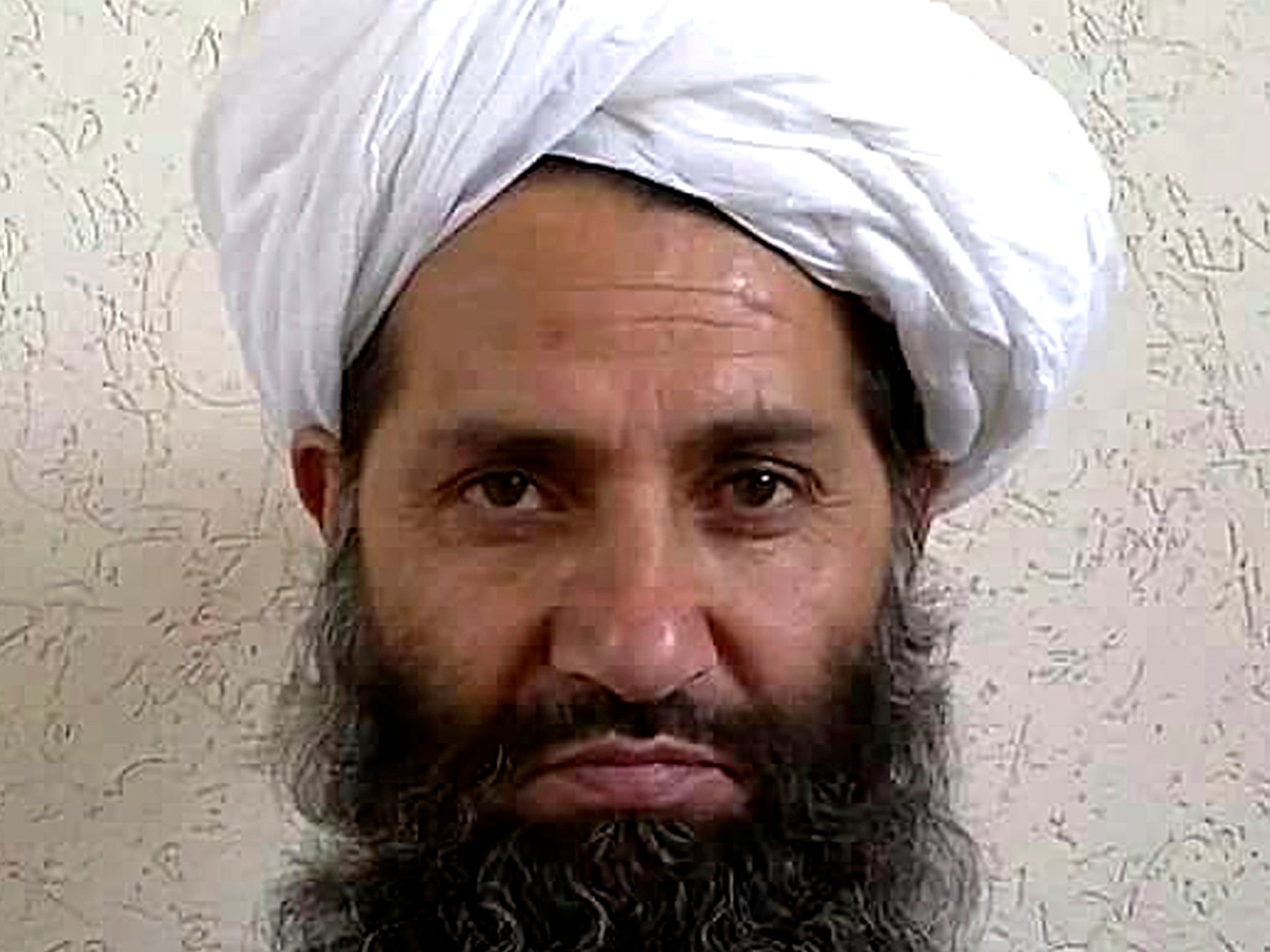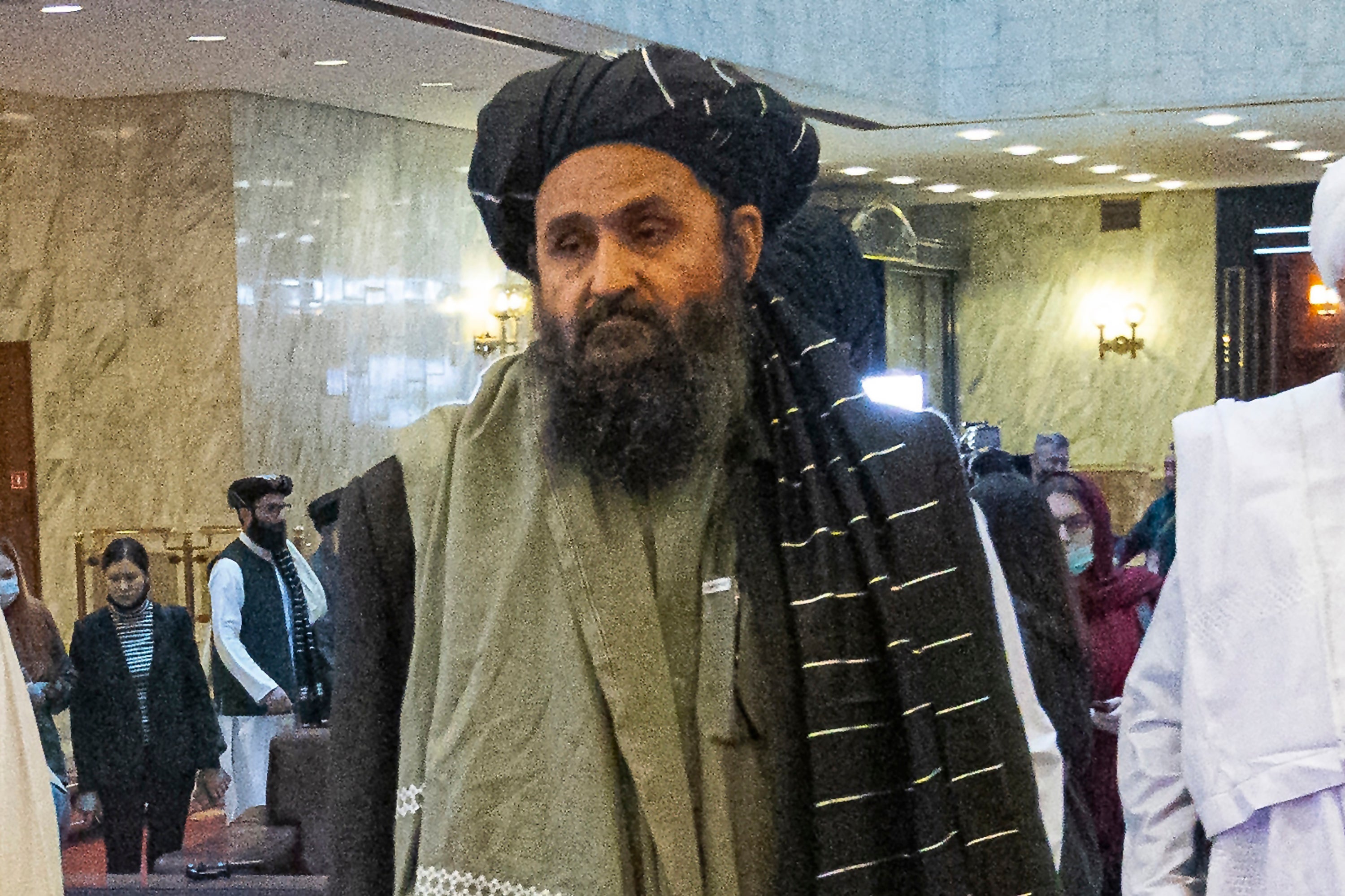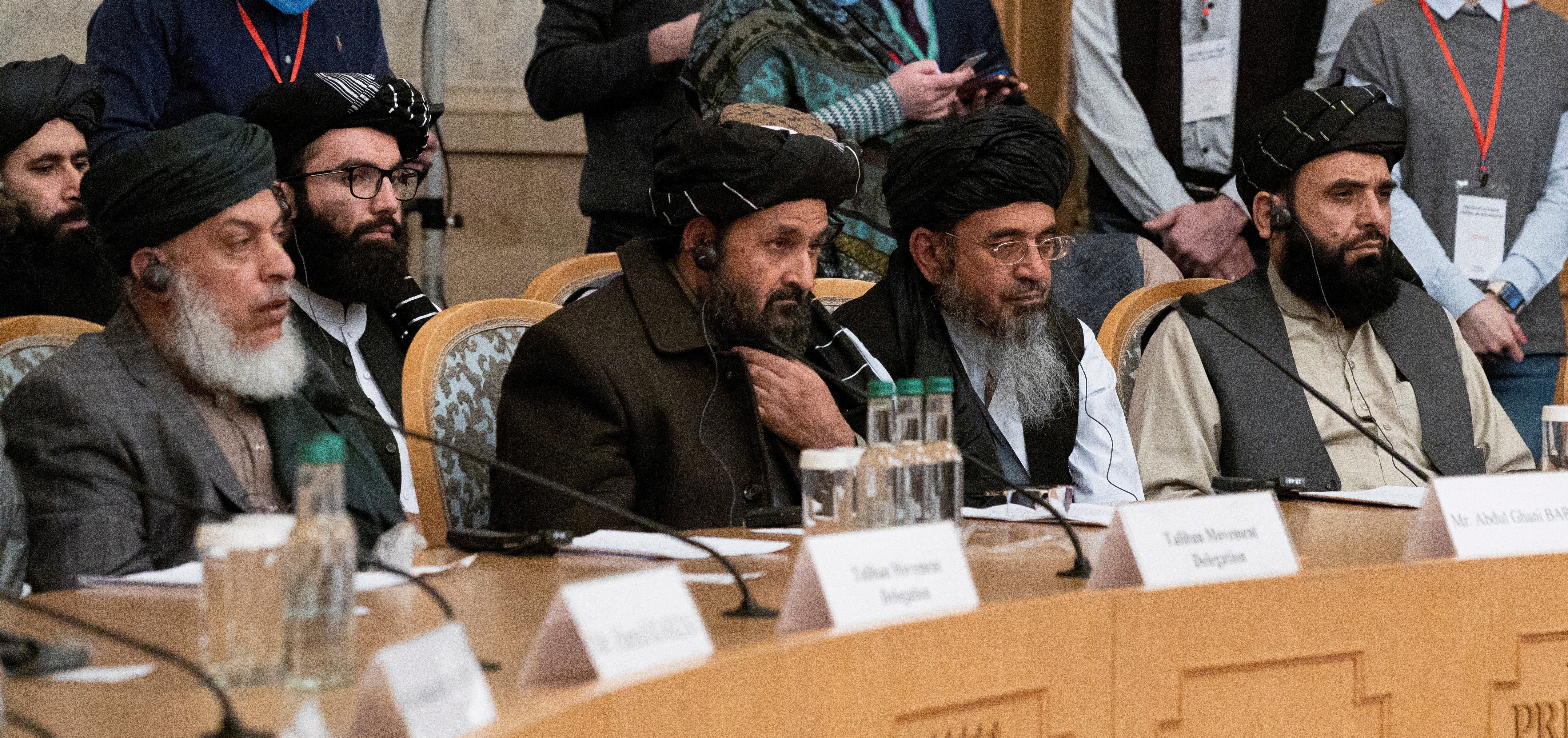The men preparing to rule Afghanistan: key players in the Taliban’s power structure
The leader, the founder and the heir: here is how a patchwork of different Taliban characters will run the lives of the Afghans

As the Taliban prepares to take power in Kabul, many in Afghanistan are reflecting back on the previous Taliban regime’s brutal policies, when beheadings, floggings, and stoning were common practices.
The group returns to a much-changed Afghanistan, with greater democratic freedoms and inclusivity for women. The change in Afghan society has raised the stakes for the Taliban as the US and Nato forces abruptly withdrew from the country in the past weeks.
How its power structure will accommodate the new reality and reconcile it with its own beliefs is being closely watched, along with the formation of its new government.
This will increasingly depend on a tiny circle of personalities embroiled in a fierce competition of personal ambitions and tribal feuds at the top of the Taliban power structure.
“There are two elements to the Taliban, and their surroundings may have provided some conditioning on leadership roles as well as future direction. This includes those based in Pakistan and those residing in Qatar,” said Sajjan Gohel, international security director at the Asia-Pacific Foundation and a visiting teacher at the London School of Economics in London.
The Judge and supreme leader

The 60-years-old group’s supreme leader Haibatullah Akhunzada will likely issue the general guidance for his aides on how the group will run the country in the future. His current whereabouts remain unknown, but many experts say he is most likely in Pakistan.
He was elected as the undisputed leader of the movement after his predecessor, Mullah Akhtar Mansour‘s assassination in an airstrike near the Afghan-Pakistani border in 2016.
So far, Akhunzada showed a high level of pragmatism and a great ability to manoeuvre within the Taliban. Mullah Mansour left a fractioned group as he reportedly failed to resolve feuds between different Taliban factions, which led to the defection of many commanders who later challenged the leadership. After the death of Mullah Mohammed Omar, the one-eyed Taliban founder, in 2014, many commanders accused Mullah Mansour of covering up his death and assuming leadership without proper approval.
Akhunzada was selected for his credentials as the most prominent religious scholar and advisor to Mullah Omar, a veteran fighter (Mujahid) against the Soviet Union and - like the other Taliban leaders - a Pashtun, the biggest ethnic group in Afghanistan.
Akhunzada obtains the prestigious title of “emir ul momineen” - or “leader of the faithful” and is the “ultimate authority” on religious, political, and military issues. He enjoys absolute powers due to Islamic jurisprudence rules, which make his orders enforceable. The supreme leader remains in office until death and may not be removed unless he violates strict religious laws or is unable to carry out his duties due to illness.
After his inauguration, Akhunzada received a pledge of loyalty from al-Qaeda chief Ayman al-Zawahiri, which helped secure his jihadi credentials.
The Taliban leader doesn’t oversee a clear power structure. The group does not have a public set of rules for running the day-to-day administrative work within its rank and file, and its members don’t carry identity cards.
However, Akhunzada sits on top of the leadership Shura Council (Rahbari Shura), consisting of 21 members. Under the Shura Council, nearly two dozen commissions and offices serve as a kind of cabinet of ministers, such as the political office, the economic commission, the education commission and the high court of justice.
Akhunzada has three deputies, each overseeing a bundle of the political, military and economic affairs commissions and offices. These deputies are expected to manage the daily work in any possible Taliban government.
The founder

The most famous deputy leader is Mullah Abdulghani Baradar, one of the group’s most respected and popular figures and its political chief.
His name means ‘Brother’ and was given to him by his brother-in-law, Mullah Omar. After fighting the Soviets side-by-side, the pair, with others, co-founded the Taliban.
Baradar is seen by most in the west as the leader of the reform camp in the leadership Shura Council.
Like Akhunzada and many other commanders, he was raised in Kandahar — the birthplace of the Taliban movement.
After the collapse of the Taliban regime in 2001, Baradar joined a handful of Taliban commanders in signing a letter to Former President Hamid Karzai offering a deal that would have seen the militant group recognise the new administration.
Mullah Baradar was arrested in Pakistan in 2010 but was released after pressure from the US, possibly to secure support within the Taliban for the peace negotiations with Washington. He was immediately appointed head of the political office and was sent to Doha, where he oversaw the withdrawal agreement with the US.
Since then, he has met with leaders from other countries, including his meeting with China’s Foreign Minister Wang Yi last month in Tianjin.
“Without doubt, the real strings of the Taliban shall be pulled by Mullah Ghani Baradar and Hibatullah, although the former likes the publicity whilst the latter shuns it hence (they) form a good double team”, Kamal Alam, visiting fellow at the Royal United Services Institute in London, told The Independent.
“One thing is for sure, Baradar has been the public diplomat and the reformer talking about a new Taliban,” he added.
Baradar is expected to be the new president or foreign minister in any future Taliban government.

The heir
The other deputy leader is Mullah Mohammad Yaqoob, the military commander of the Taliban. Mullah Yaqoob is the son of Mullah Omar, and he is believed to be in his mid-30s. He is a member of the Pakistan-based faction.
His bloodline and close ties to his father confers on him a symbolic power and makes him a unifying figure over a sprawling movement.
He was elevated to the military commander role after his predecessor, Ibrahim Sadr, a powerful field commander, opposed peace efforts with Washington. Sadr was among eight Taliban members designated as global terrorists by the US Treasury Department in 2018.
Mullah Yacoop is now believed to be the mastermind behind the recent military offensive that saw the Taliban bringing Afghan provinces under control at a speed that surprised western observers.
He is expected to oversee the military affairs in any Taliban government. Many experts say he may one day ascend to the role of the supreme leader.
Baradar and Yaqoob have supported Akhunzada’s decisions in the leadership council, especially the negotiations with the US. Without this support, Akhunzada’s peace efforts would have most likely been thwarted by hardliners.
They haven’t worked side-by-side for 20 years, so to suddenly combine their approaches could be complicated, and divisions may emerge
The Haqqanis
In the face of Baradar’s and Yaqoob’s prestigious status, the third deputy, Sirajuddin Haqqani, is thought to be the most influential.
He is the son of the famous mujahideen commander Jalaluddin Haqqani, who led Islamic fighters against the Soviet forces. Sirajuddin is considered one of the most dangerous commanders within the Taliban. The Haqqanis were believed to have introduced the car bombing as a tactic to the Taliban and were behind many massive explosions in Kabul and high profile assassinations targeting Afghan officials.
In addition to his duties as the leader of the Haqqani Network, operating across the Afghan-Pakistani border, Sirajuddin oversees the Taliban’s financial and military assets. He is wanted by the FBI, which still categorises the Haqqani Network as a terrorist organisation.
Another commander within the Haqqanis is Abdulhakim Haqqani, the head of the Taliban’s negotiating team in Doha. He is the Taliban’s former shadow chief justice and heads its powerful council of religious scholars. He is widely believed to be someone whom Akhundzada trusts most.
The negotiating team also includes Sher Mohammad Abbas Stanekzai, a former deputy minister in the Taliban’s government before its ouster. Stanekzai has lived in Doha for nearly a decade and became the head of the group’s political office there in 2015.
He has taken part in negotiations with the Afghan government and has represented the Taliban on diplomatic trips to several countries.
Personal ambitions and tribal competitions will likely emerge within the Taliban once the group establishes a full grip on power.
“Unless they have already been communicating through Pakistani intermediaries, it will be interesting if all these figures can quickly resolve that leadership hierarchy, or if differences emerge between the Qatar and Pakistan factions,” Gohel said.
“They haven’t worked side-by-side for 20 years, so to suddenly combine their approaches could be complicated, and divisions may emerge, not about doctrine but over a quest for power,” he added.
Join our commenting forum
Join thought-provoking conversations, follow other Independent readers and see their replies
Comments